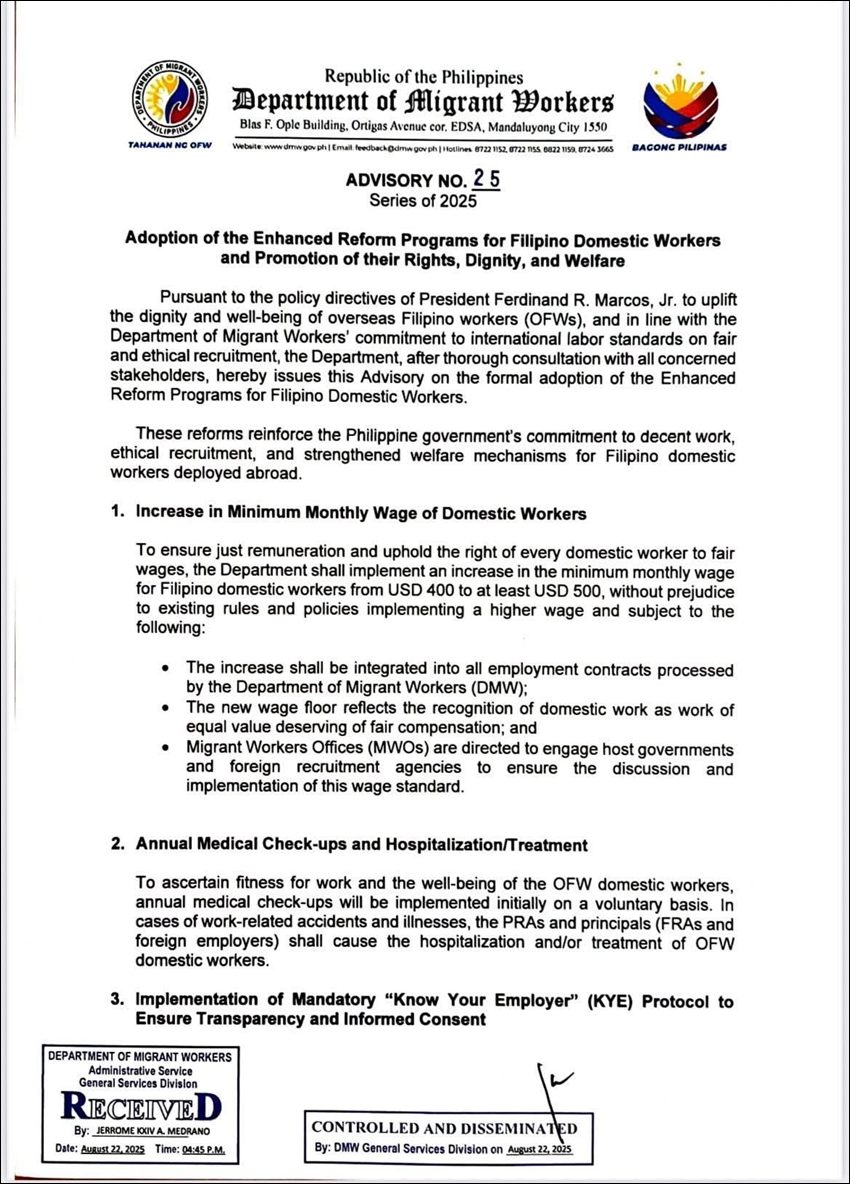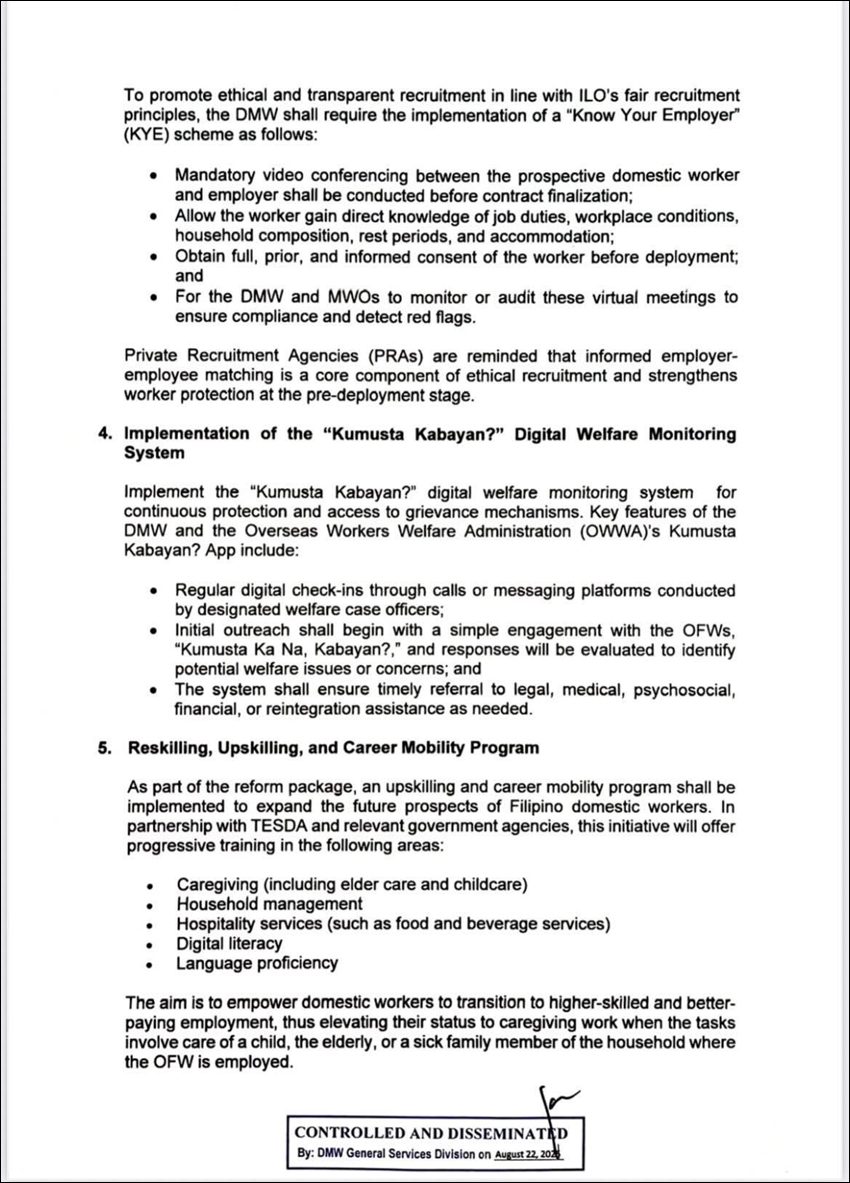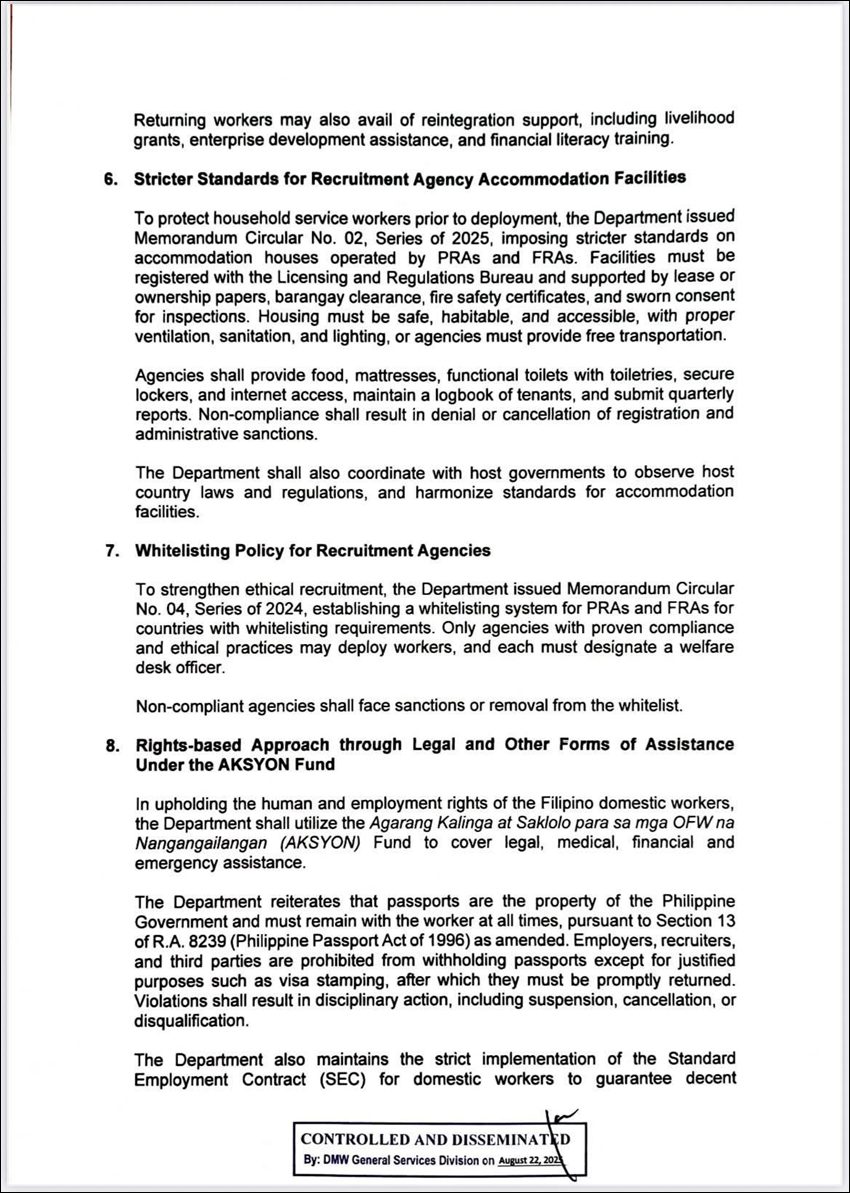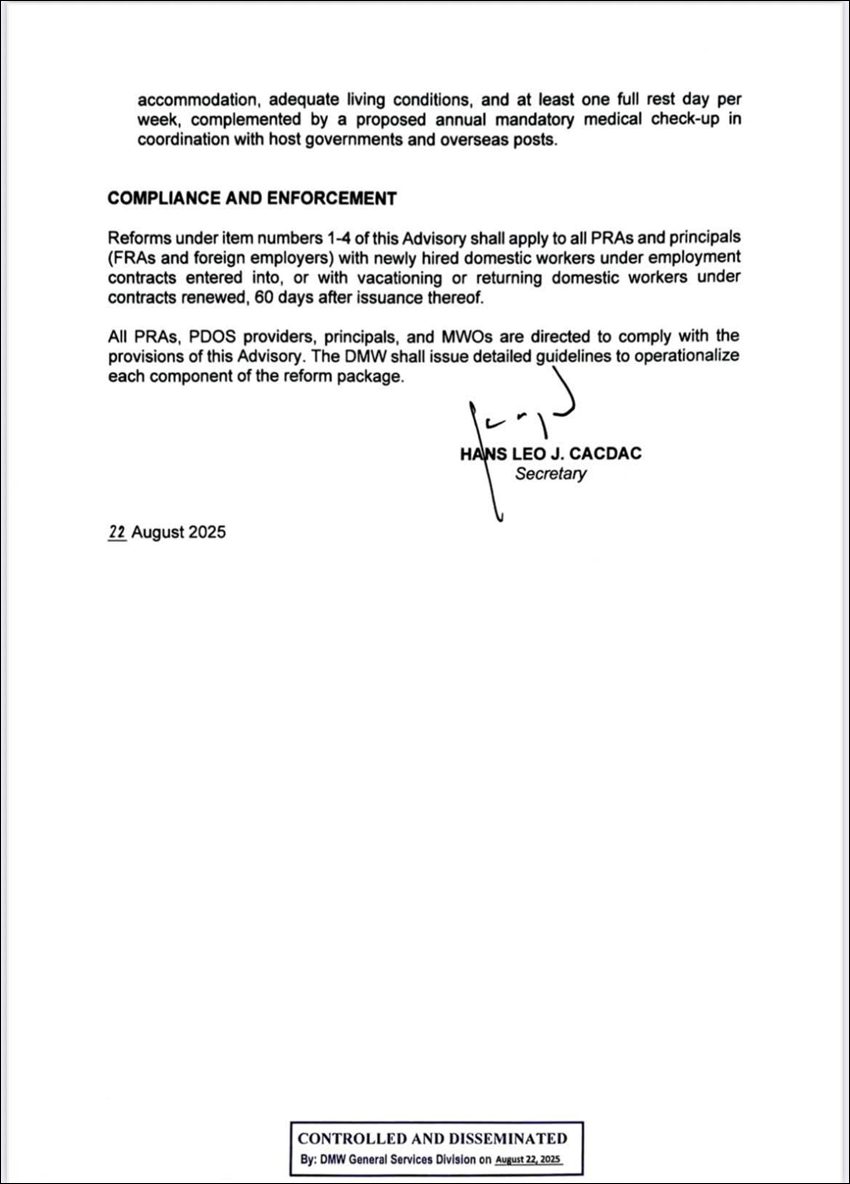Overseas Filipino Workers (OFWs) working as domestic helpers can expect better compensation as the Department of Migrant Workers (DMW) implements a substantial wage increase. The new policy raises the minimum monthly salary from USD 400 to USD 500, representing a meaningful 25% increase for Filipino household workers abroad.

What This Means for OFW Domestic Helpers
This wage adjustment translates to an additional USD 100 monthly for domestic workers, providing much-needed financial relief for Filipino families both overseas and back home. The increase recognizes domestic work as valuable labor deserving fair compensation, addressing long-standing concerns about adequate wages for household workers.
Secretary Hans Leo Cacdac of the DMW emphasized that this USD 500 amount serves as a baseline, not a maximum. Domestic workers with specialized skills or those working in specific countries may negotiate higher salaries based on their qualifications and local market conditions.
Key Reforms for Domestic Workers
Filipino domestic workers will also benefit from a comprehensive reform package introduced by the DMW. These reforms aim to promote safety, well-being, and career growth, in addition to the salary increase:
- Higher Minimum Wage: The minimum monthly salary for domestic workers will be raised from USD 400 to at least USD 500, acknowledging the value of their work.
- Free Medical Care: Annual medical check-ups and hospital care will be available for domestic workers, provided voluntarily and free of charge at the start.
- “Know Your Employer” Calls: Before contract signing, domestic workers will participate in a video call with their employer to ensure transparency and mutual understanding.
- “Kumusta Kabayan?” Welfare Checks: The DMW will regularly reach out to OFWs through a digital monitoring system to check their well-being and offer timely support.
- Career Growth Programs: Reskilling and upskilling opportunities will help domestic workers improve job prospects and access better career options.
- Better Housing Standards: Recruitment agencies must provide higher standards of accommodation for workers awaiting deployment.
- Whitelisting of Agencies: Only agencies with proven ethical practices and compliance records will be allowed to deploy workers abroad.
- Legal and Financial Support: Ongoing access to legal aid and other assistance will be available through the DMW AKSYON Fund.
Implementation Timeline and Process
The new minimum wage will become effective 60 days after the official announcement. This timeline allows recruitment agencies and employers to adjust existing contracts and prepare for the transition. The DMW has confirmed that all new employment contracts will incorporate this wage standard.
The salary increase follows extensive consultations with various stakeholders, including recruitment agencies, employer representatives, and worker advocacy groups. This collaborative approach ensures the policy addresses practical concerns while protecting worker interests.
While the wage increase represents the most visible change, domestic workers will benefit from additional protective measures. The DMW plans to introduce stricter oversight of recruitment agencies, ensuring only those with proven ethical practices can deploy workers abroad.
The department will also implement a digital monitoring system called “Kamusta Kabayan” to regularly check on worker welfare. This proactive approach shifts from waiting for distress calls to actively reaching out to OFWs to assess their working conditions.
Focus on Major Deployment Destinations
The policy particularly impacts Filipino domestic workers in key Middle Eastern markets, including Saudi Arabia, UAE, Qatar, and Kuwait. These four countries host the largest concentrations of Filipino household workers and will be priority areas for implementing the new wage standards.
Migrant Workers Offices in these locations will engage with host governments and private employers to ensure smooth adoption of the new minimum wage requirements.
Future Developments
The DMW announced plans to create separate job classifications for domestic workers and caregivers. Many household workers currently perform caregiving duties without appropriate recognition or compensation. This separation will establish distinct wage scales reflecting the different skill sets required for each role.
Additionally, the department will strengthen its whitelisting system for recruitment agencies. Only agencies demonstrating consistent compliance and ethical practices will maintain authorization to deploy domestic workers overseas.
Complementing the wage increase, the DMW will expand reskilling and upskilling programs through partnerships with TESDA. These initiatives help domestic workers transition to higher-paying sectors such as caregiving, hospitality, or other specialized fields.
The department also plans to provide free annual medical check-ups for domestic workers, initially on a voluntary basis, funded through the DMW Aksyon Fund.
Ensuring Fair Implementation
The success of this wage increase depends on proper monitoring and enforcement. The DMW will work closely with Philippine embassies and consulates to ensure employers comply with the new minimum wage requirements.
Workers experiencing wage-related issues can access support through the DMW’s assistance programs, including legal aid and financial support when necessary.
This landmark decision reflects the Philippine government’s commitment to protecting OFW welfare and recognizing the vital contributions of domestic workers to both host countries and the Philippine economy. The USD 500 minimum wage establishes a foundation for fairer compensation while opening pathways for even better working conditions in the future.
Please see the full advisory of this announcement below:



